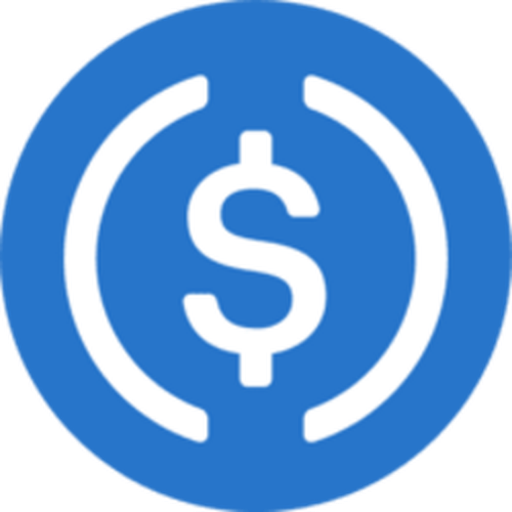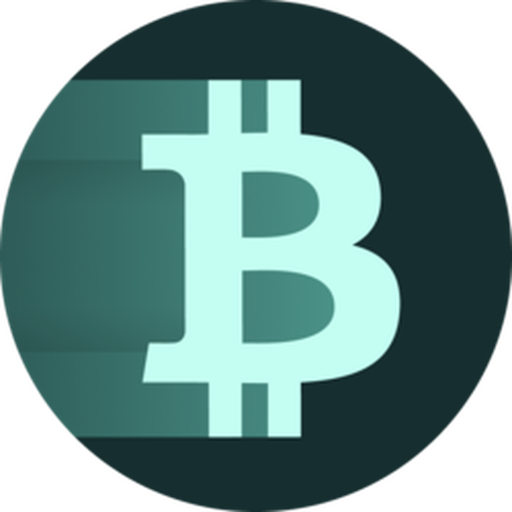USDC vs Lombard Staked BTC – Price, Market Cap & Performance Compared
Which coin performs better – USDC or Lombard Staked BTC?
We compare the current price (0.99971 $ vs 113 483 $), market cap (74 153 765 385 vs 1 534 094 960) and all-time high (1.17 vs 124 380).
Find out which one stands out right now!
USDC is currently trading at 0.99971 $, while Lombard Staked BTC stands at 113 483 $. These cryptocurrencies differ not only in price but also in market presence.
The market cap of USDC is around 74 153 765 385, and Lombard Staked BTC has about 1 534 094 960. Their respective all-time highs are 1.17 for USDC and 124 380 for Lombard Staked BTC.
Daily trading volume and the 24h price change (-0.00009 % vs 1.52228 %) also offer key insights.
Compare all metrics now and see which coin fits your investment strategy best!
USDC
USD Coin (USDC) is a stablecoin that is pegged to the US dollar, offering a consistent value and reducing the volatility often associated with cryptocurrencies. It provides a crucial bridge between traditional financial systems and digital currency markets, facilitating easy and secure transactions. USDC's foundation on blockchain technology ensures transparency and enhances trust among users and institutions.
more informationLombard Staked BTC
Lombard Staked BTC is a unique offering in the cryptocurrency landscape, combining the stability of Bitcoin with the yield-enhancing possibilities of staking protocols. By leveraging sophisticated financial mechanisms, it provides investors with the opportunity to earn rewards while maintaining exposure to Bitcoin's market dynamics. This innovation reflects a growing trend where traditional crypto assets are being transformed into productive, yield-bearing instruments.
more information

|

|
|
|
|
General Information |
|
|---|---|
|
Title
USDC
|
Title
Lombard Staked BTC
|
|
Symbol
usdc
|
Symbol
lbtc
|
|
Whitepaper
-
|
Whitepaper
-
|
|
Website
|
Website
|
|
Community
-
|
Community
|
|
Last Updated
2025-09-24 23:29
|
Last Updated
2025-09-24 23:29
|
Price Data |
|
|---|---|
|
Current Price $
0.99971 $
|
Current Price $
113 483 $
|
|
High 24h
0.99972 $
|
High 24h
114 043 $
|
|
Low 24h
0.99960 $
|
Low 24h
111 660 $
|
|
Price Change 24h
0.00000 $
|
Price Change 24h
1 701.62 $
|
|
Price Change % 24h
-0.00009 %
|
Price Change % 24h
1.52228 %
|
Market Data |
|
|---|---|
|
Market Cap
74 153 765 385
|
Market Cap
1 534 094 960
|
|
Total Volume
10 559 655 699
|
Total Volume
18 897 223
|
|
Market Cap Change 24h
159 815 467
|
Market Cap Change 24h
21 731 238
|
|
Market Cap Change % 24h
0.21598 %
|
Market Cap Change % 24h
1.43691 %
|
|
Return on Investment (ROI)
-
|
Return on Investment (ROI)
-
|
Supply and Availability |
|
|---|---|
|
Circulating Supply
74 175 659 818
|
Circulating Supply
13 895
|
|
Total Supply
74 172 355 958
|
Total Supply
-
|
|
Max Supply
-
|
Max Supply
-
|
Historical Data |
|
|---|---|
|
All Time High (ATH)
1.17
|
All Time High (ATH)
124 380
|
|
ATH Change %
-14.75232 %
|
ATH Change %
-8.77904 %
|
|
ATH Date
2019-05-08 00:40
|
ATH Date
2025-08-14 00:51
|
|
All Time Low (ATL)
0.87765
|
All Time Low (ATL)
52 119
|
|
ATL Change %
13.90744 %
|
ATL Change %
117.69429 %
|
|
ATL Date
2023-03-11 08:02
|
ATL Date
2024-09-06 21:01
|
USDC
Understanding USDC: A Stablecoin in the Volatile Crypto World
USDC, or USD Coin, is a prominent stablecoin in the cryptocurrency market. Issued by Circle and backed by fully reserved assets, USDC is designed to maintain a 1:1 value ratio with the US Dollar, making it a reliable digital dollar. The stablecoin ecosystem plays a crucial role in the broader cryptocurrency industry by providing a less volatile alternative to traditional cryptocurrencies like Bitcoin and Ethereum.
The Evolution of USDC
Launched in 2018, USDC was developed as part of a collaboration between Circle and Coinbase, two major forces in the cryptocurrency space. Since its inception, USDC has seen significant growth and adoption, becoming one of the leading stablecoins alongside Tether (USDT) and Binance USD (BUSD). While its all-time high reached $1.17 in May 2019, this was more of an anomalous spike that reinforced the need for rigorous controls to maintain stability around its intended $1 peg.
Pros of Using USDC
One of the primary advantages of USDC is its transparency and regulatory compliance. Circle, the company behind USDC, undergoes regular audits and publishes monthly attestations of its reserves, ensuring users that each USDC token is truly backed by a dollar or dollar-equivalent asset held in reserve. This transparency fosters trust and helps mitigate the volatility that plagues much of the crypto market.
Furthermore, USDC serves as a bridge between traditional finance and the blockchain world. It's used widely in Defi applications, allowing decentralized lending, borrowing, and trading while maintaining value stability. Additionally, USDC's integration into various wallets and exchanges worldwide adds to its utility and liquidity.
Cons of USDC
Despite its advantages, USDC is not without its drawbacks. One of the critical concerns involves regulatory risks, as stricter regulations on stablecoins could impact its future operations. Also, as a centralized stablecoin, USDC is subject to censorship concerns, where accounts can be frozen, diverging from the decentralized ethos that underlies most cryptocurrencies.
Another drawback is that, unlike decentralized alternatives, USDC requires a level of trust in the issuer, Circle. Any potential mismanagement or economic instability affecting Circle could, in theory, impact its ability to maintain the 1:1 peg, a risk inherent to any centralized stablecoin.
Past Performance and Market Impact
USDC has generally maintained its peg effectively, with minor fluctuations typically remaining within a tight range around $1. Its stability has been pivotal during periods of crypto market volatility, where it serves as a safe haven for investors looking to escape market downturns without exiting the crypto ecosystem.
In terms of market cap, USDC has experienced exponential growth, driven by increased adoption in the decentralized finance (Defi) space and demand for stable trading pairs. Despite being eclipsed by Tether (USDT) in terms of market share, USDC's reputation for transparency gives it a competitive edge.
Future Outlook for USDC
Looking ahead, USDC's future appears promising but laden with challenges. The growing scrutiny from regulators worldwide could result in regulatory changes impacting its operations. However, Circle's proactive approach to compliance and regulation may shield USDC from adverse outcomes.
The stablecoin's role in facilitating seamless transactions and enabling innovative financial products in the Defi space will likely continue to drive its utility and adoption. Moreover, as traditional financial institutions begin to explore blockchain technology, USDC could play a critical role in bridging the two worlds.
In summary, USDC's stability, transparency, and integration with both traditional and decentralized finance systems position it as a key player in the ongoing evolution of digital finance. However, navigating regulatory landscapes and maintaining trust will be crucial for its sustained success.
Lombard Staked BTC
Introducing Lombard Staked BTC
The cryptocurrency landscape continues to evolve with the emergence of promising assets designed to cater to diverse investment strategies. One such intriguing asset is Lombard Staked BTC (LBTC). LBTC is gaining traction among investors seeking the benefits of staking blended with the robustness of Bitcoin. As of October 2024, the price of LBTC stands at $67,107, reflecting its growing reputation and market presence.
Understanding the Mechanics of LBTC
At its core, Lombard Staked BTC combines the foundational elements of Bitcoin with a staking mechanism that offers additional returns on holding the asset. By participating in the staking process, investors can earn rewards, contributing to a potentially higher yield compared to simply holding Bitcoin. This staking attribute is central to LBTC's appeal as it provides financial incentives while maintaining exposure to Bitcoin's dynamic market.
Analyzing Historical Performance
LBTC has had a relatively short but impactful history in the cryptocurrency market. The asset achieved its all-time high of $69,758 on October 21, 2024, reflecting the increasing demand and positive sentiment surrounding staked assets. Notably, LBTC's all-time low was recorded at $52,119 on September 6, 2024, before experiencing a remarkable recovery. This volatility is characteristic of the crypto market, highlighting both risks and opportunities for potential investors.
Assessing the Pros and Cons of LBTC
One of the distinct advantages of investing in LBTC is the potential for higher returns through its staking mechanism. The earning potential from staking is attractive for long-term holders seeking compounded gains. Additionally, by staking LBTC, investors can support the network's security and operations.
However, there are inherent risks associated with LBTC. The volatility seen in its price history indicates a susceptibility to market fluctuations, which can impact short-term value. Moreover, as with any cryptocurrency, regulatory changes or technological disruptions pose potential risks to investors.
The Future Landscape for LBTC
As the crypto environment continues to mature, the future prospects for LBTC appear promising. The coin's staking feature may attract a growing number of investors seeking diversification and returns beyond traditional Bitcoin holdings. Furthermore, as more holders participate in staking, the inherent stability and security of the network may improve, potentially leading to reduced volatility over time.
The outlook for LBTC will significantly depend on market acceptance of stake-based assets and the broader adoption of staking as an investment strategy. Should these trends continue, LBTC may offer compelling opportunities for savvy investors wishing to balance risk with reward.
Conclusion: A Cautious but Optimistic Approach
Lombard Staked BTC presents a unique proposition in the cryptocurrency space by integrating Bitcoin's proven value with staking incentives. While it offers promising advantages, prospective investors should carefully consider inherent market risks and remain informed about market trends and developments. As always in the crypto market, a well-researched and diversified approach can offer the best path towards capitalizing on the opportunities LBTC presents.

